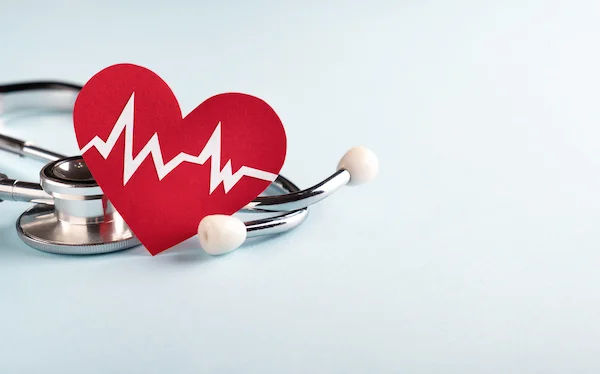Understanding Heart Fibrillation Basics
Learn the basics of heart fibrillation, including its types, causes, symptoms, and treatment options. Understand how atrial fibrillation affects heart rhythm and overall health.

Written by Dr. Shaik Abdul Kalam
Reviewed by Dr. Rohinipriyanka Pondugula MBBS
Last updated on 25th Aug, 2025

Introduction
Heart fibrillation, also known as atrial fibrillation (AFib), is a common heart condition that affects millions of people worldwide. If you or a loved one has been diagnosed with AFib, or if you suspect you might have it, this article will help you understand the basics, what it is, its symptoms, causes, and how to manage it effectively.
What Is Heart Fibrillation?
Heart fibrillation occurs when the upper chambers of the heart (the atria) beat irregularly and out of sync with the lower chambers (the ventricles). Normally, your heart beats in a steady rhythm, pumping blood efficiently. However, in AFib, the electrical signals in the heart become chaotic, causing the atria to quiver (fibrillate) instead of contracting properly.
This irregular rhythm can lead to poor blood flow, increasing the risk of complications like blood clots, stroke, and heart failure.
Common Symptoms of Heart Fibrillation
Not everyone with AFib experiences symptoms, but when they do, they may include:
Palpitations (a fluttering, racing, or pounding heartbeat)
Fatigue or weakness
Dizziness or lightheadedness
Shortness of breath
Chest pain or discomfort (seek immediate medical help if this occurs)
Some people only notice symptoms occasionally, while others may feel them persistently. If you experience any of these, it’s important to consult a doctor.
What Causes Heart Fibrillation?
Several factors can contribute to AFib, including:
Age (risk increases after 60)
High blood pressure (a major risk factor)
Heart disease (coronary artery disease, valve problems, previous heart attacks)
Chronic conditions (diabetes, thyroid disorders, sleep apnea)
Lifestyle factors (excessive alcohol, smoking, obesity, stress)
Sometimes, AFib can occur without any obvious cause, which is known as lone atrial fibrillation.
Consult Top Specialists for Personalised Tips
How Does AFib Affect Your Health?
If left untreated, AFib can lead to serious complications:
Stroke – Irregular heartbeats can cause blood to pool and form clots, which may travel to the brain.
Heart Failure – The heart’s inefficient pumping can weaken it over time.
Fatigue & Reduced Quality of Life – Persistent symptoms can make daily activities difficult.
The good news? With proper treatment and lifestyle changes, many people with AFib can lead healthy, active lives.
Managing Heart Fibrillation: Tips & Lifestyle Changes
While AFib requires medical treatment, certain lifestyle adjustments can help manage symptoms and reduce risks:
1. Follow a Heart-Healthy Diet
Eat more fruits, vegetables, whole grains, and lean proteins.
Reduce salt, sugar, and unhealthy fats to control blood pressure and cholesterol.
Limit caffeine and alcohol, as they can trigger AFib episodes.
2. Stay Active (But Don’t Overexert)
Moderate exercise like walking, swimming, or yoga can improve heart health.
Avoid extreme workouts without consulting your doctor.
3. Manage Stress & Sleep Well
Practice deep breathing, meditation, or mindfulness to reduce stress.
Treat sleep apnea if present, as it worsens AFib.
4. Take Medications as Prescribed
Blood thinners (to prevent clots and stroke)
Heart rate or rhythm control medications
Never skip doses without consulting your doctor.
5. Monitor Your Heart Health
Keep track of your blood pressure and pulse.
Use a smartwatch or home ECG device (if recommended by your doctor).
When to Seek Medical Help
If you experience:
Severe chest pain
Fainting or extreme dizziness
Sudden shortness of breath
Signs of stroke (face drooping, arm weakness, speech difficulty)
Seek emergency care immediately.
How Apollo 24|7 Can Help
If you suspect you have AFib or need expert care, Apollo 24|7 offers:
Consultations with cardiologists (online or in-person)
Diagnostic tests (ECG, Holter monitoring, echocardiogram)
Personalized treatment plans
You can easily book a consultation or schedule a test through the Apollo 24|7 app or website.
Final Thoughts
Heart fibrillation is a manageable condition with the right care and lifestyle changes. If you or someone you know is experiencing symptoms, don’t ignore them, early diagnosis and treatment can make a big difference.
Consult Top Specialists
Consult Top Specialists for Personalised Tips

Dr. Anand Ravi
General Physician
2 Years • MBBS
Bengaluru
PRESTIGE SHANTHINIKETAN - SOCIETY CLINIC, Bengaluru

Dr. Bhethala Sharan Prakash
General Physician/ Internal Medicine Specialist
5 Years • MBBS MD
Bengaluru
PRESTIGE SHANTHINIKETAN - SOCIETY CLINIC, Bengaluru

Dr. Sumanjita Bora
Cardiologist
9 Years • MBBS, PGDCC
Bengaluru
Apollo Clinic, Sarjapur Road, Bengaluru
Dr. Mahendranath Subramani Prasad
Cardiologist
16 Years • MBBS,MS ,DNB, M.Ch. Cardiovascular and Thoracic Surgery(Cardiology)
Bengaluru
Apollo Clinic, Sarjapur Road, Bengaluru

Dr. Ramalinga Reddy
General Physician
5 Years • MBBS MD General medicine
Bengaluru
PRESTIGE SHANTHINIKETAN - SOCIETY CLINIC, Bengaluru
Consult Top Specialists

Dr. Anand Ravi
General Physician
2 Years • MBBS
Bengaluru
PRESTIGE SHANTHINIKETAN - SOCIETY CLINIC, Bengaluru

Dr. Bhethala Sharan Prakash
General Physician/ Internal Medicine Specialist
5 Years • MBBS MD
Bengaluru
PRESTIGE SHANTHINIKETAN - SOCIETY CLINIC, Bengaluru

Dr. Sumanjita Bora
Cardiologist
9 Years • MBBS, PGDCC
Bengaluru
Apollo Clinic, Sarjapur Road, Bengaluru
Dr. Mahendranath Subramani Prasad
Cardiologist
16 Years • MBBS,MS ,DNB, M.Ch. Cardiovascular and Thoracic Surgery(Cardiology)
Bengaluru
Apollo Clinic, Sarjapur Road, Bengaluru

Dr. Ramalinga Reddy
General Physician
5 Years • MBBS MD General medicine
Bengaluru
PRESTIGE SHANTHINIKETAN - SOCIETY CLINIC, Bengaluru

.webp)


